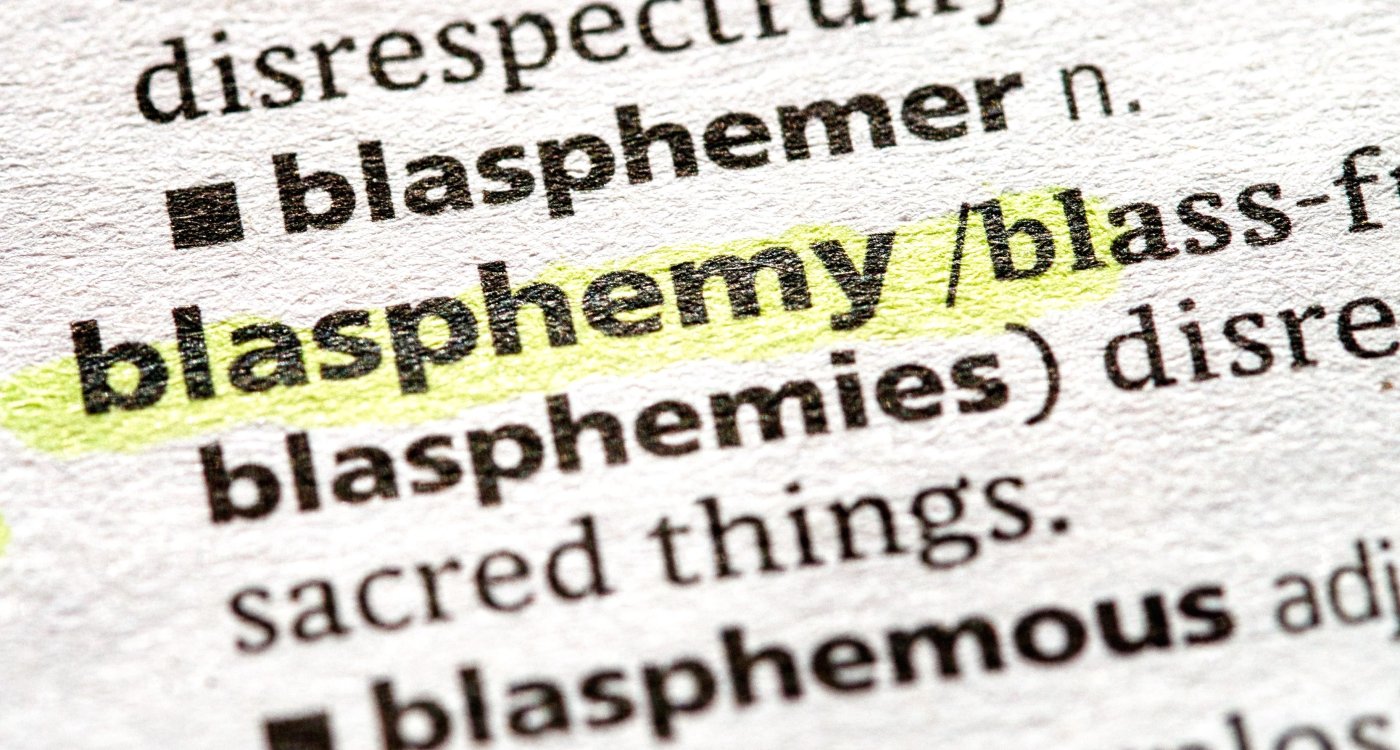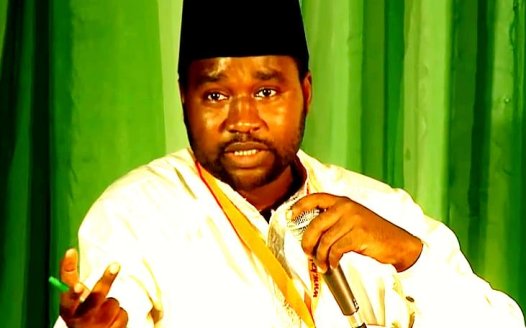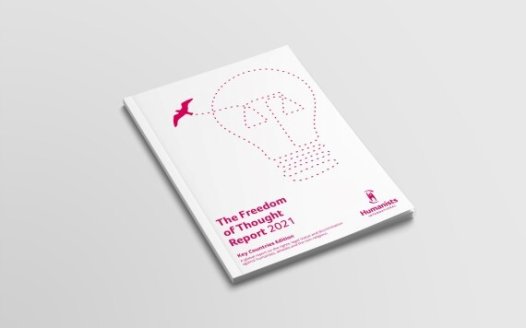Freedom of religion or belief must include the freedom to ‘blaspheme’
Posted: Fri, 29th Sep 2023 by Jack Rivington
The freedom to question and criticise religious ideas in the same manner as any other kind is foundational to a democratic society. Where it exists at all, this freedom is constantly threatened, both by its traditional enemies of theocracy and religious fundamentalism, but also increasingly from a misguided interpretation of liberal values.
A recent report from the United States Commission on International Religious Freedom identified 95 countries which criminalise blasphemy in some way. That number is at least one too few, as it fails to include the United Kingdom, where the offences of blasphemy and blasphemous libel remain on the books in Northern Ireland.
Punishments in countries which outlaw blasphemy vary, from fines to imprisonment and execution. Unjust though such legal processes are, the extra-judicial violence licenced and encouraged by such laws is of equal importance. The Center for Inquiry, which established September 30th as International Blasphemy Rights Day, has said to "charge someone with blasphemy is to value a person's life less than an idea". Though this is particularly true in countries such as Nigeria and Pakistan, where those accused of blasphemy are often murdered, it is also the case worldwide. Last year, Sir Salman Rushdie was attacked in Chautauqua, New York, 34 years after the Ayatollah Khomenei called for his murder for the supposed offence of blasphemy.
Those who would impose and enforce blasphemy codes on others do not respect or recognise national borders or sovereignty. A commitment to free speech must therefore be equally international in its scope. In failing to fully abolish its blasphemy laws, the UK validates the notion that perceived offence to religion or God should be prohibited, thereby undermining its ability to promote the right to freedom of expression elsewhere.
Attempts to shield religion from criticism are also underway via systematic efforts to characterise such criticism as a form of racial or ethnic bigotry. The concept of 'Islamophobia', vigorously promoted by Islamists both in the UK and abroad, is the most pressing example. Integral to the concept is the claim that criticism of ideas is equivalent to attacking individuals. Under the term's definition formulated by the All Party Parliamentary Group on British Muslims (APPG), to question Islamic ideology is to effectively express hate for Muslims.
This is a blasphemy law in another form – a point demonstrated by the case of Erika López Prater, who was fired last year by Hamline University after discussing artistic representations of Muhammad in an art history class. A Muslim student complained that as images of Muhammad are banned in Islam, the content of the lesson – and by extension Prater – was thus blasphemous and Islamophobic.
By agreeing that images of Muhammad are Islamophobic and should therefore not be shown, Hamline generalised the personal feelings and religious interpretation of one individual as the definitive position of Islam. But this view is not shared by all Muslims. As Anna Khalid - an associate professor of history at Carleton College and herself a Muslim - pointed out, in endorsing the supposed Islamic ban on images of Muhammad, Hamline "privileged a most extreme and conservative" point of view.
A policy which empowers the most fundamentalist elements within a religious community is neither liberal nor inclusive. Yet that is precisely what the current arguments around 'hate speech' have achieved. What we have, in effect, is a code which polices a particular theological interpretation of Islam against other interpretations. It is a gross perversion of laws intended to protect the right to freedom of religion or belief to enlist them in sectarian theological disputes in this way.
If the right to freedom of religion or belief means anything, it must include the right of those within religious groups considered blasphemous by more doctrinaire views to practice their faith as they see fit. The current understanding of 'Islamophobia' threatens those who perceived not to conform to traditional theology – Muslim women who reject the hijab, openly LGBT Muslims, and minorities within the religion such as Ahmadis, for example. It is absurd to think that a gay Muslim could be labelled 'Islamophobic' for criticising elements of their own faith which are homophobic. Yet under the current conceptual framework, such criticism could be labelled as such. The ability to criticise religion must therefore be seen as an essential component of the right to freedom of religion or belief, not in conflict with it.
However well-intentioned, politicians who endorse the concept of 'Islamophobia' are effectively reintroducing blasphemy laws by the backdoor and empowering fundamentalists within religious communities in the process. Concerningly, a significant part of the UK's political establishment appears unaware of the problem – the APPG definition has been accepted by all major parties except the Conservatives, along with one in seven UK local authorities.
The UK must not sacrifice the right to free speech in a misguided attempt to promote social cohesion. Secularism, and a robust defence of the ability to criticise all ideas and ideology, is the only genuine way to achieve an properly inclusive society which respects everyone's right to freedom of religion or belief. In defending that right, we must remain vigilant.
Image: frank333, Shutterstock









